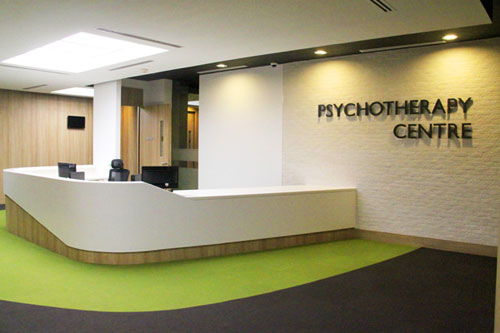Some of the group therapies currently available for adolescents and adults include:
Building Resilience against Challenging Emotions (BRACE) is an 8-session programme for adolescents that is based on CBT techniques. Participants are provided with the opportunity to learn useful strategies to cope with anxiety and mood issues from group facilitators, and from one another’s experiences.
Intensive Therapeutic Programme (ITP) is an 8-session skills-based programme for inpatients aged 13-18 years with anxiety and/or depression, and is designed to provide stabilisation and symptom reduction.
PsychUp is an 8-session, closed group therapy programme for adults. It emphasises interpersonal learning and focuses on cultivating healthier methods to address one’s mood and/or anxiety symptoms (drawn from CBT techniques), and facilitates opportunities for relating to others in a new or constructive way.
Mindful of Emotions (ME) is a 12-weekly, open group programme for adults who face difficulties in managing strong emotions, out-of-control behaviours and/or poor interpersonal relationships. The programme is based on the principles of Dialectical Behaviour Therapy (DBT) and teaches core DBT skills to participants over the course of 4 modules.
Other time-limited group programmes may be offered, such as those based on other therapeutic approaches (e.g., Acceptance and Commitment Therapy, Interpersonal and Social Rhythm Therapy etc) or targeted at specific conditions (e.g. Bergen 4-Day Therapy for treatment of obsessive-compulsive disorder). Groups are sometimes offered for caregivers of patients.
Psychodynamic therapy is a longer-term, intensive psychotherapy. Through examination and self-reflection, it focuses on improving your awareness of emotions and mental processes, and deepens understanding of how the past might influence current behaviour. The relationship between yourself and the therapist is also an important window into observing problematic relationship patterns in your life. The therapy begins with an assessment phase, and this helps to determine if this if the most suitable therapy for you.
Medical social workers provide a range of psychosocial services aimed at addressing the individual and family’s psychosocial concerns while optimising recovery and resilience for individuals, families and caregivers.
Family/systemic psychotherapy is a key service provided by medical social workers. This form of therapy is useful for situations where individuals face
- Relational difficulties; such as problems with marriage, other family members and significant others; and other social systems (work, peers, etc.)
- Maladaptive communication patterns within families
- Challenges in negotiating rules, roles and expectations during major transitions
- Intergenerational pain relating to unresolved trauma and anxieties
- Grief and loss issues
- Caregiver burden/care issues
The art therapist works with individuals to understand issues and feelings that may underlie their current difficulties.
Art Therapy involves making art (painting, drawing, clay, etc) in the presence of an art therapist. Individuals do not need to be good at art and there is no right or wrong way to make art.
The process of making art allows one to make decisions and discoveries about oneself that enable one to make positive changes.
Individual therapy sessions (typically up to 8-12 sessions) are offered either in-person or via teleconsultation. Given the high demand for our services, there may be a long waiting time for the booking of an appointment. Therapy is also time-limited and change focused. This is to ensure that we can provide the most efficient and highest quality of service to as many patients in need as possible.
To get the most of therapy, you need to be actively engaged in it and that includes the following:
- Make therapy a priority
- Get into the “zone” by preparing for therapy (e.g. being punctual, planning how you would like to spend your session)
- Take responsibility for your therapy by reflecting on what you want from therapy. If you are unclear of what you want from therapy, it can be helpful to discuss your goals of therapy with your therapist. Clarifying this can help you figure out if you have met your goals and when to stop therapy
- Respect the therapeutic frame (i.e. value the therapy by keeping the boundaries of the time we set to talk in a way that it is ok to disclose, to be self-focused, to allow ourselves to feel and express emotions as well as allow for parts to come to the fore).
- Encourage others to respect your therapy
- To do the hardest work between sessions
- Honour and guard the relationship with your therapist by treating your therapist with dignity and respect
- Do not undermine therapy by contradicting it the rest of the time
- To come with a mindset to learn
- While therapy is important, it is important that you continue to engage with life.
If you would like to receive psychotherapy, please approach your attending doctor to discuss about a referral.
IMH’s outpatient Psychotherapy Centre, located on Level 2 (above Clinic B, opposite the Woodbridge Museum) provides a quiet and conducive environment for patients who have been referred by IMH clinicians for therapy. The Centre is equipped with 16 therapy rooms, including an art therapy group room and a family therapy room.
Opening Hours
Monday to Thursday: 8am–5.30pm
Friday: 8am–5pm
